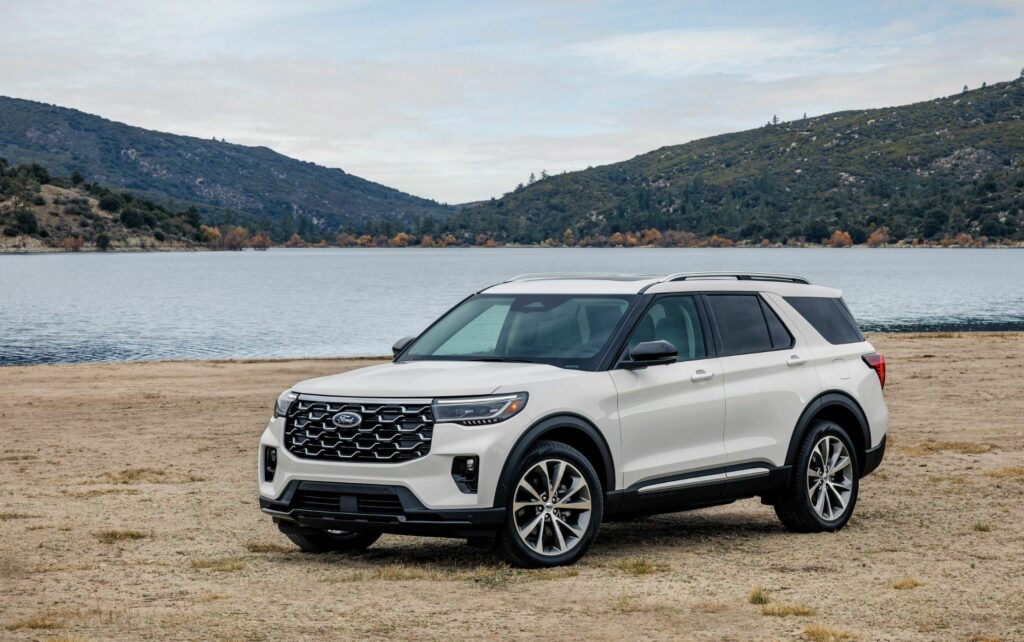- New vehicles will be held for up to six weeks so Ford can perform quality checks before they are sent to dealers and customers.
- Ford says it avoided a dozen recalls by holding back 2024 F-150s by six weeks to inspect them.
- In 2023, Ford issued more recalls in the U.S. than any other manufacturer.
Those eagerly awaiting the launch of the updated 2025 Ford Explorer, Bronco Sport, and Maverick models will have to wait a little longer, as all three have been delayed as the carmaker introduces new processes to reduce recalls.
While speaking on Ford’s recent first-quarter earnings call, chief executive Jim Farley revealed that new models rolling out of its plants will be held for up to six weeks, giving Ford the time it needs to perform thorough quality checks before vehicles are sent to dealers and customers.
Read: Nearly 63,000 Ford Mavericks Face Instrument Cluster Blackouts
This new approach was adopted by Ford earlier this year for the updated F-150. Bloomberg reports that more than 60,000 examples sat in parking lots throughout Detroit as engineers checked them for quality issues. Farley says these checks allowed Ford to avoid 12 recalls that it otherwise would have had to make, including for assembly problems and software glitches.
In one case, inspections found that the F-150’s wiring harness was improperly installed behind the dashboard and could rub against a metal bracket. Over time, this would have severed the wiring and caused the instrument cluster to go blank.
The Ford Explorer is now being subjected to the same rigorous quality inspections after production, and the same will be done for the 2025 Bronco Sport and 2025 Maverick, both of which will arrive later this year. Ford has held the unglamorous title of recalling more vehicles than any other automaker in the U.S. in recent years, and under Farley’s leadership, it is eager to stop this.

Ford’s recall issues have swelled to a $4.8 billion-a-year issue, and while Farley acknowledged that its revenues will take a hit by performing additional inspections, he said Ford will see “fewer recalls and lower warranty costs because of this new process,” in the long term.
The carmaker says it has seen a 10% increase in quality in 2024 models, and its defect rate has fallen to 20%, bringing it in with the industry average. According to the company’s chief operating officer Kumar Galhotra, “the goal is to move very rapidly to catch Toyota,” generally viewed as the gold standard regarding how few recalls it has.
According to iSeeCars analyst Karl Brauer, while Ford is improving, fixing vehicles after they’ve already been built isn’t ideal, and the carmaker needs to address issues in how it designs and engineers new models.




